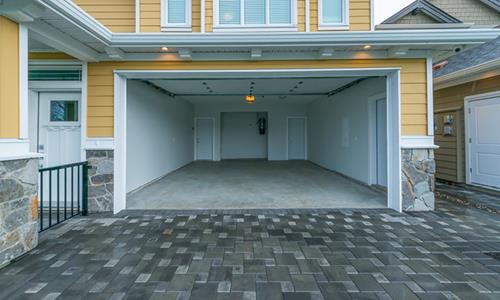While the average American life expectancy is about 77.5 years,* the reality is that many Americans are living well into their 80s and some into their 90s.
With many seniors living longer lifespans, rethinking our retirement plans and goals is essential, especially when the retirement years are expected to stretch well beyond what previous generations experienced.
Reverse Review magazine recently published an article based on an interview with Nobel Laureate Robert C. Merton that features Merton’s analysis and solutions to the current retirement dilemma.
In the article, Merton discusses how the good news of longer lifespans brings a new challenge for many Americans: finding ways to fund their lifestyles during those extra years.
For instance, if we live 10 years longer than our parents, but still want to retire at 65 as they did, we have to save enough to support up to 20 years of retirement (if not more). As Merton describes, the only way most people could do this is to save about 33% of their income throughout their careers.
Essentially, what Merton says is, “You can either work longer or accept a lower standard of living. What you can’t do is work the same number of years as your parents, live longer, and enjoy the same standard of living. That’s not feasible.”
For those who did not save adequately and have retired before age 73, there is another solution. Merton suggests maximizing your current assets. Yet, he’s not talking about getting higher returns… because most people are already maximizing returns on their investments based on the level of risk they’ve chosen.
Instead, Merton suggests that most Americans should tap into one specific asset: their home. “There is no magic here,” he says. “For working middle-class people, the biggest asset they have is not their retirement pension, it’s their house. And it’s typically the only major asset they have, but it is big. I’m talking about the house they want to live in during retirement.”
Merton also suggests that we need to think about our house differently — viewing it as an asset rather than treating it as part of our legacy.
“The house is like an annuity: it provides the housing you need for as many years as you need it,” he says, adding that leaving the house as a bequest is an outdated concept. “No matter how precious the house is — how sacred — in the end, when you don’t need it anymore, it’s going to get sold, and that makes it a financial asset.”
As a result, Merton praises the concept of a reverse mortgage. Merton points out that other countries, such as England and Korea, have similar equity conversion programs. Korea describes their reverse mortgage equivalent as a “home pension” because it allows the homeowner to take some of home’s value to provide additional income for the owner.
In the United States, the FHA-insured reverse mortgage provides the same benefit, but people often misunderstand a reverse mortgage because of the misconceptions and negative stigma associated with the name.
Merton believes that home equity conversion — whether it’s called a home pension or a reverse mortgage — is a crucial part of solving the retirement income problem.
“Sooner or later, to have a decent retirement, a number of people are going to have to tap into this. It’s not a matter of choice. This is going to be an essential part of the foundation for retirement funding around the world,” he says.
At Waterstone Mortgage, we help seniors explore whether a reverse mortgage is ideal for their current circumstances and long-term goals. Because reverse mortgages are unique, we take the time to answer questions, address concerns, and help our potential clients strategize for the future.
Interested in learning more? Get in touch with a trusted Reverse Mortgage Specialist at Waterstone Mortgage. It’s our goal to help senior citizens create a more financially stable and secure retirement.
*According to the CDC
These materials are not from HUD or FHA and were not approved by HUD or a government agency.
The only reverse mortgage insured by the U.S. Federal Government is called a Home Equity Conversion Mortgage (HECM), and is only available through a Federal Housing Administration (FHA)-approved lender. Not all reverse mortgages are FHA insured. When the loan is due and payable, some or all of the equity in the property that is the subject of the reverse mortgage no longer belongs to borrowers, who may need to sell the home or otherwise repay the loan with interest from other proceeds. A lender may charge an origination fee, mortgage insurance premium, closing costs and servicing fees (added to the balance of the loan). The balance of the loan grows over time and you are charged interest on the balance. Borrowers are responsible for paying property taxes, homeowner’s insurance, maintenance, and related taxes (which may be substantial). There is no escrow account for disbursements of these payments. A set-aside account can be set up to pay taxes and insurance and may be required in some cases. Borrowers must occupy home as their primary residence and pay for ongoing maintenance; otherwise the loan becomes due and payable. The loan also becomes due and payable (and the property may be subject to a tax lien, other encumbrance, or foreclosure) when the last borrower, or eligible non-borrowing surviving spouse, dies, sells the home, permanently moves out, defaults on taxes, insurance payments, or maintenance, or does not otherwise comply with the loan terms. Interest is not tax-deductible until the loan is partially or fully repaid.





